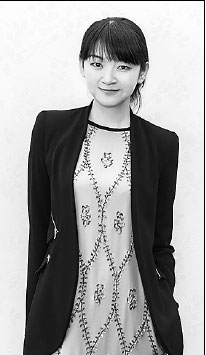Say it with flowers, but now say it online
Updated: 2016-06-09 07:48
By Shi Jing in Shanghai(China Daily)
|
||||||||
Growth of florists mirrors women's spending power and rise of 'she-economy'
If you want to jazz up your home with fresh flowers, there's no need to wander the streets on the hunt for florists. These days all it takes is a quick click of the phone and a bouquet will arrive, on schedule and to order, every week.
These kind of services have become increasingly popular in cities like Beijing and Shanghai. Various online flower shops have rolled out their services on official WeChat accounts.
Consumers can pay with amounts ranging from 99 yuan ($15) to 598 yuan per month and a bouquet of flowers will be delivered at a designated time every week. With that deal, customers can receive four romantic and fresh bouquets of flowers through the month.
Beijing-based Huadian Shijian is an example of the trend. Clients can get a bouquet each week for a month for a minimum 99 yuan.
The flowers are ordered in advance and are scheduled for delivery on Saturday or Monday, a week later. That's based on the order amount and the availability situation at the company's production base, located in West China's Yunnan province.
Once the flowers are chosen for the weekly special, they're packed and flown to the firm's various branches all over the country within 24 hours.
Every week Huadian Shijian brings in more than 3 tons of flowers, and all of them are used. So waste is very limited and costs are minimized.
Physical stores, which sell flowers for more than 300 yuan or even 1,000 yuan a bunch, only choose flowers that are more widely accepted by consumers. Flowers such as roses and carnations, because they don't want the less popular flowers left to rot in their stores.
For consumers, freshness of flowers is of utmost importance.
To that end Huadian Shijian has chosen the country's leading courier SF-Express which promises successful delivery the very next morning.
It's considered more efficient than building up its own logistics system. In terms of design, the product box is designed to allow flowers to stand inside. Even if the box falls down, the bouquet won't tumble inside the box.
According to Zhu Yueyi, founder and chief executive officer of Huadian Shijian, WeChat helped to save a lot of cost at the start of her business, especially in terms of promoting applications. Since WeChat's monthly active user number remains at around 700 million people, the company can take full advantage of this huge group of users.
Most current users female
About 80 percent of Huadian Shijian's current users are female, which is in line with the company's original plan. What they had not foreseen is the rapid growth of users.
Huadian Shijian's first bunch of flowers went online in July last year. Its turnover had surged by 10 times by the end of April, without any promotions of its services. The monthly service has received the most repeat orders. The word-of-mouth effect is something that is helping with the growth, according to Zhu.
The contribution of women consumers is in line with findings from market consultancy Mintel's 2016 China Consumer Trend Report. With women increasingly independent in their personal and financial lives, Chinese women are creating a "Women Only" market, the report finds.
"Brands are paying more attention to female preferences and needs in both product development and in the way in which they communicate to and with women," it said.
It is not just happening in the beauty and fashion sectors, but this newfound female perspective covers a much broader market scope that capitalizes on the growing influence of women in China. There have been a number of services emerging that cater to women's specific needs.
When it comes to spending habits, women are considered to be more open to embracing new lifestyles and are more aspirational in terms of trying new products and experiences, while men are more likely to stick to what they know.
"Customized products and services and targeted communications for female consumers will continue to be welcomed in China. At the same time, the market is waiting to see the rise of brands that are not only created for women but also owned by women," said Philix Liu, Mintel's APAC Trends analyst.
"In 2016 we will continue to see lucrative opportunities for brands to target female consumers with ever-increasing spending power to pursue their interests. This is not merely referring to catering to women's specific needs, but is also calling for brands to show their understanding, appreciation and support for the rising "she-economy", the analyst added.
Reflecting broad change
Huadian Shijian's Zhu says it also reflects another broad change. She said it can be seen that Chinese people's consumption patterns is upgrading, with money now spent on things previously considered to be "useless".
"When we were younger, parents always told us to do some thing meaningful, for example learning more English words instead of listening to music. But when we grow up, we come to realize that what has led us to become ourselves are the so-called useless things which can bring us happiness," said Zhu.
"Instead of changing the world, we think our mission is to warm our souls." Established in October 2013, Shanghai-based Floral Keys has grown to be one of the leading flower suppliers, combining online and offline services in the city.
The company now has five full-time florists, three part-time florists, and one photographer. At present, it owns four chain stores and 32 franchise stores in Shanghai. The plan is to set up 100 stores in the near future.
Apart from physical stores, Floral Keys also has a wide online network of sales, via WeChat and its own official online store. According to Guan Shengchao, marketing director of the company, the company's strength and consistency of its users come from the combination of online and offline sales.
"The thriving online flower shops signals the rise of the entire flower market. A few years ago, services such as providing monthly delivery services was something really inconceivable," he said.
"But now, the service has become really prevalent. It is driven by the upgraded consumption mode of Chinese people, who are attaching more importance to brand value and life quality. Therefore, price wars are not the way out for flower shop owners," he said.
As the company targets the mid-level market, the flowers it offers are relatively higher-priced when compared with its rivals. Its monthly service has prices ranging from 298 yuan to 598 yuan. It said the quality of its flowers has made the difference, with most of them imported.
"The roles of flowers vary. It seems they can be used for all occasions," he said. "The demand is solid during holidays. Sometimes they are even considered an affordable luxury. So, the combination of both online and offline stores can help to meet the demand of different customers."
As Mintel has discovered, the online-to-offline service is growing more popular among consumers and across a wide array of sectors in China's major cities. From retail delivery to door-to-door professional services. Traditional retail brands and start-ups are striving to convert consumer interest into sustainable business.
shijing@chinadaily.com.cn
|
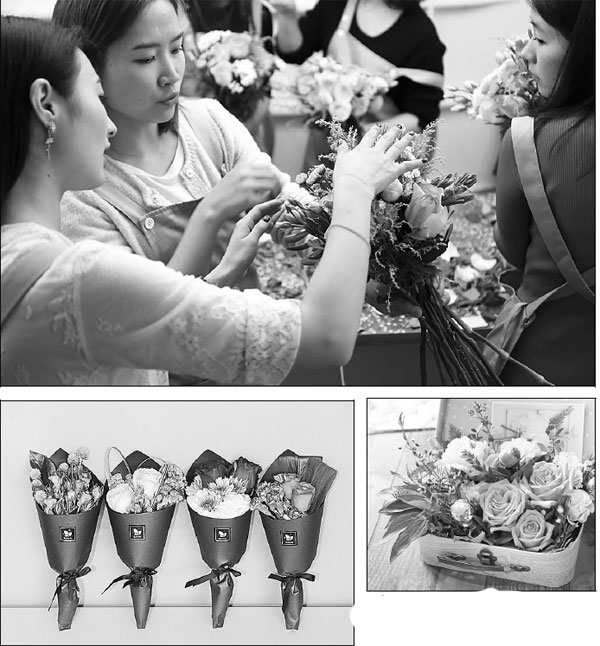 |
|
Zhu Yueyi, founder and chief executive officer of Huadian Shijian |
(China Daily 06/09/2016 page9)
- Suspected IS terrorists arrested in Germany
- Japanese boy abandoned by parents in Hokkaido forest found alive
- China to build Africa's biggest university library
- 'Kill list' found in UCLA campus shooter's residence: Police
- Swiss declare Alps tamed as Gotthard rail tunnel opens
- China urges Japan to properly settle Chinese forced laborers issue

 Euro powers land in France for UEFA EURO 2016
Euro powers land in France for UEFA EURO 2016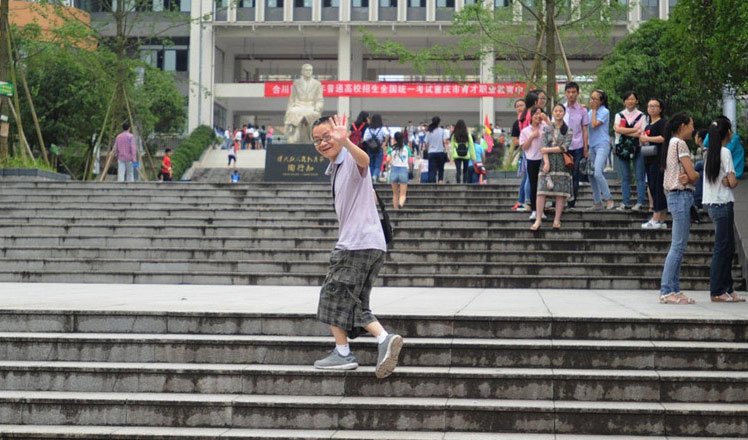
 The most unusualgaokao candidates in 2016
The most unusualgaokao candidates in 2016
 Elderly man carries on 1000-year old dragon boat craft
Elderly man carries on 1000-year old dragon boat craft
 Row your dragon boat, cute pandas in Yunnan!
Row your dragon boat, cute pandas in Yunnan!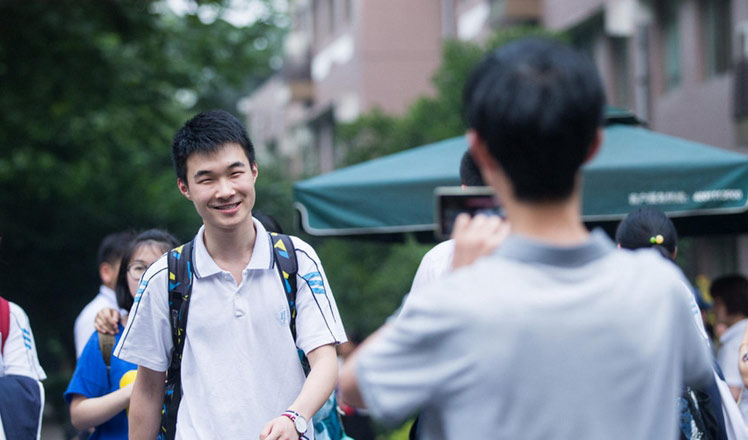
 In pics: China's college entrance exam starts
In pics: China's college entrance exam starts
 Popular foods to break fast during holy month of Ramadan
Popular foods to break fast during holy month of Ramadan
 Top 10 biggest brands in Asia listed in media report
Top 10 biggest brands in Asia listed in media report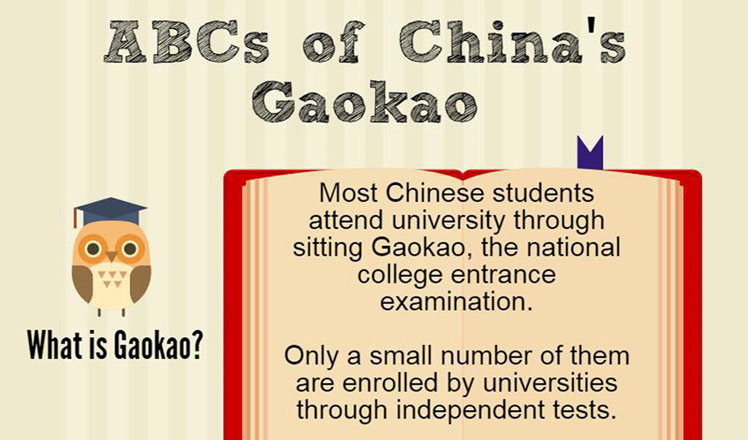
 Things you need to know about China's gaokao
Things you need to know about China's gaokao
Most Viewed
Editor's Picks

|

|

|

|

|

|
Today's Top News
Abe's blame game reveals his policies failing to get results
Ending wildlife trafficking must be policy priority in Asia
Effects of supply-side reform take time to be seen
Chinese State Councilor Yang Jiechi to meet Kerry
Chinese stocks surge on back of MSCI rumors
Liang avoids jail in shooting death
China's finance minister addresses ratings downgrade
Duke alumni visit Chinese Embassy
US Weekly

|

|
